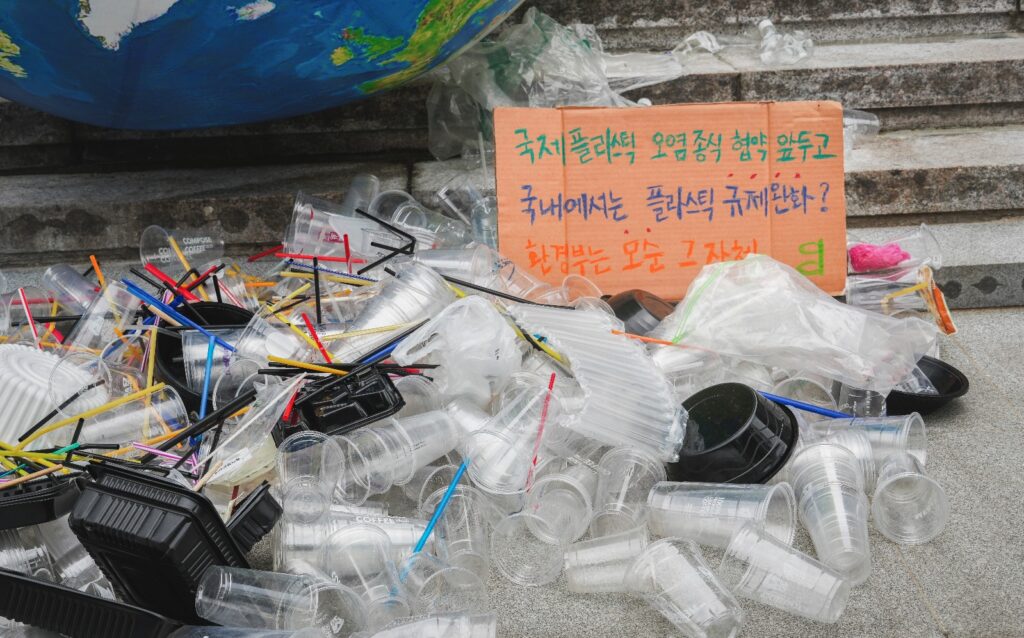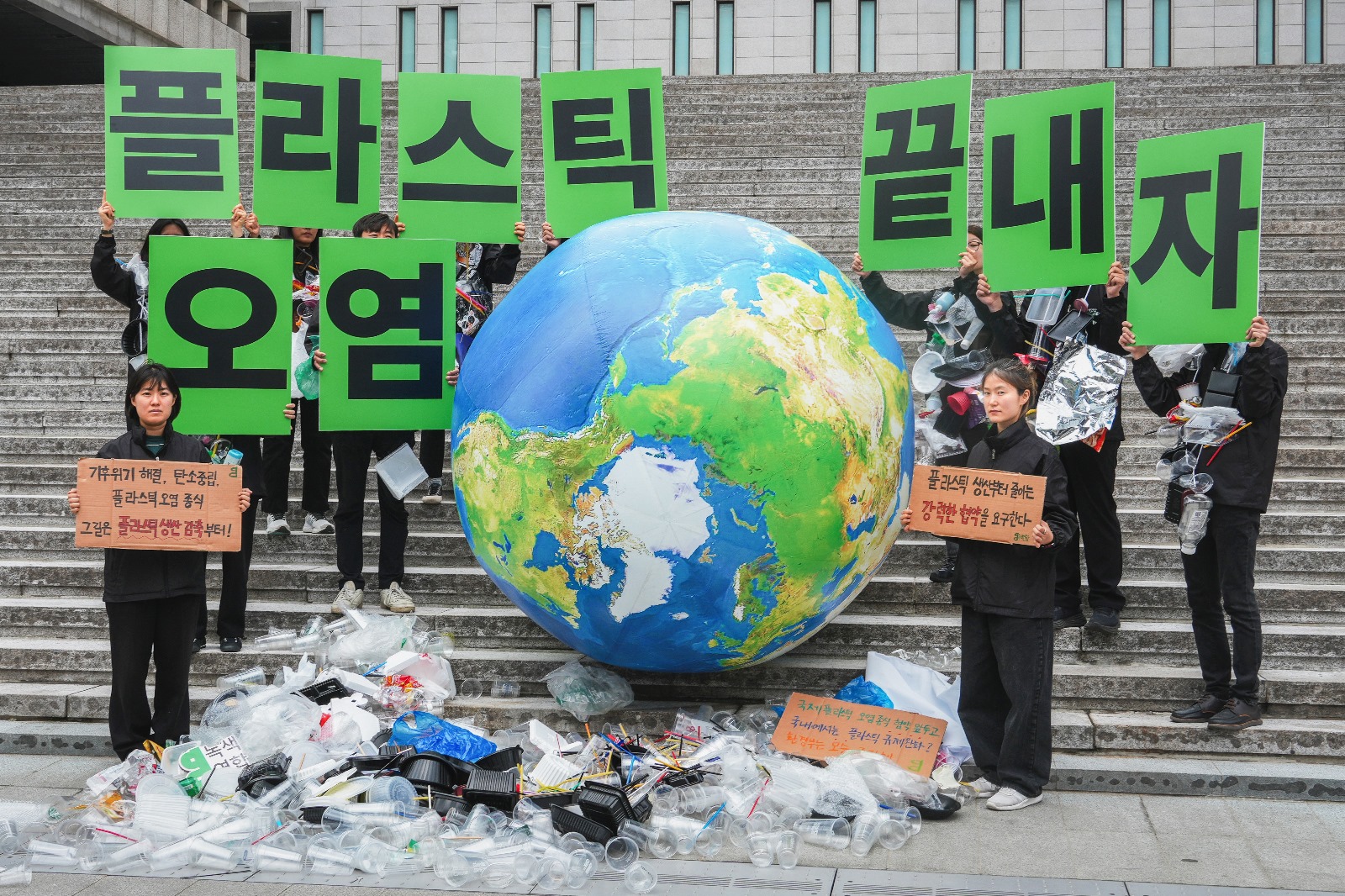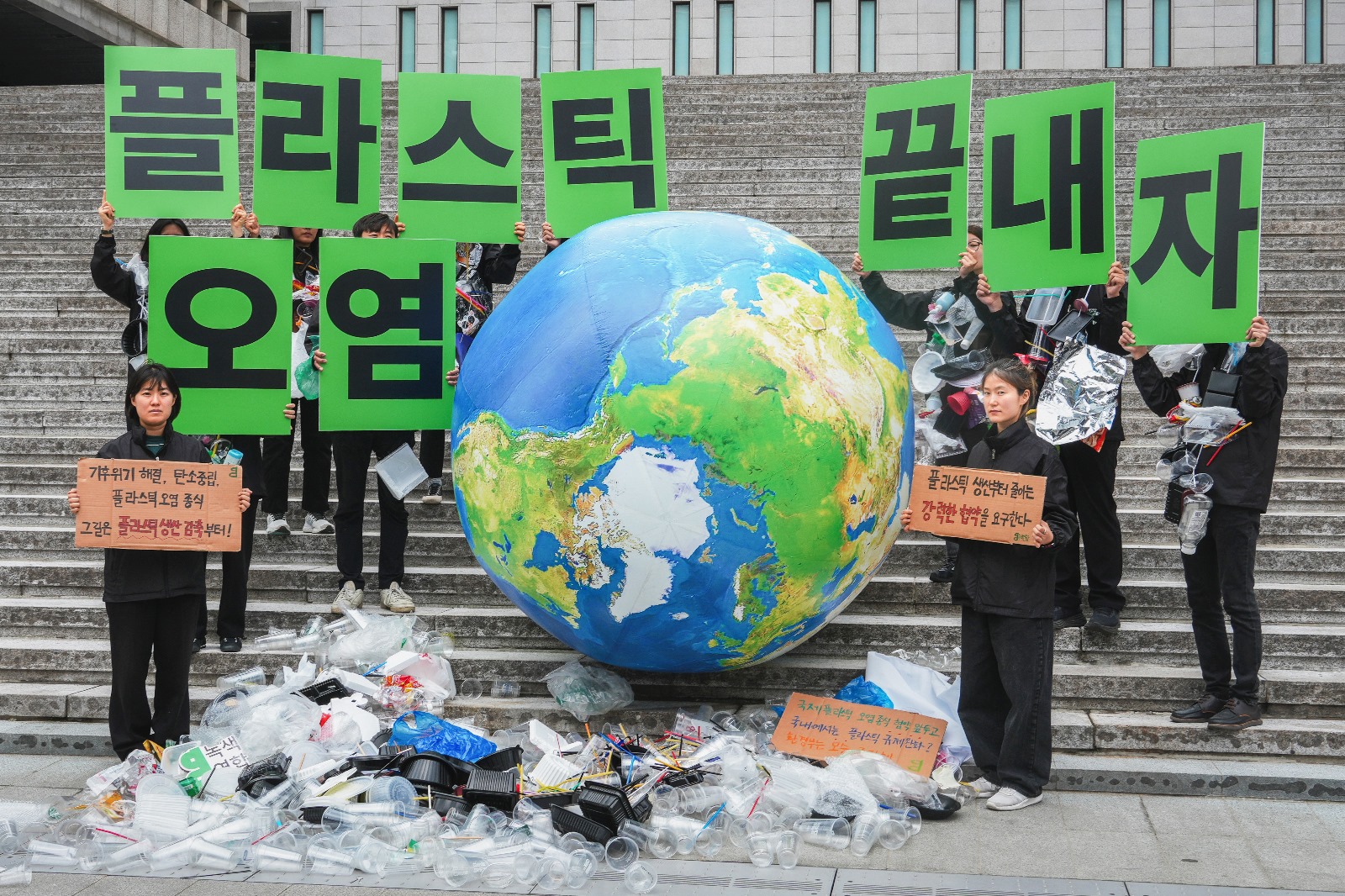On April 30, the fourth meeting of the Intergovernmental Negotiating Committee on the Global Plastics Treaty (hereafter “INC-4”) concluded without concrete progress. The decision was made not to include a discussion on primary plastic polymers in the intersessional work. This decision reverses the direction of UN Environmental Assembly (UNEA) Resolution 5/14, which originally agreed that production reductions were needed, and moves us further away from a strong agreement. The outcome of the INC-4 is extremely disappointing, given that dramatic reductions in plastic production are necessary to combat the climate crisis.
Plastics produce greenhouse gases throughout their life cycle, which contribute to global warming. Research has also shown that as global temperatures rise and extreme weather events such as typhoons and floods become more frequent, plastic in the ocean breaks down more easily and is dispersed farther, polluting marine ecosystems, and the two are closely linked. This is why the goals of the Global Plastics Treaty should be aligned with the United Nations Framework Convention on Climate Change (UNFCCC) Paris Agreement goal of limiting the increase in global temperature to well below 1.5 degrees Celsius.

© Green Korea United
While there are many concerns about the outcome of the INC-4, there was some progress. Peru and Rwanda proposed a 40% reduction in global primary plastic polymer use by 2040 compared to 2025, which was strongly supported by Malawi, the Philippines, Fiji, and others. The High Ambition Coalition to End Plastic Pollution (HAC) also announced its position that the text should include a requirement to limit and reduce the consumption and production of primary plastic polymers to sustainable levels. It is also noteworthy that the member states agreed to mandate intersessional work and to involve observers in this process.
During this fourth round of negotiations, the ‘Bridge to Busan’ declaration was released to add momentum to the fifth round of negotiations in Busan. The declaration “reaffirms the mandate of United Nations Environment Assembly (UNEA) Resolution 5/14 to develop an international legally binding instrument on plastic pollution, including in the marine environment, based on a comprehensive approach that addresses the full lifecycle of plastics” and emphasizes that “the full lifecycle of plastics includes the production of primary plastic polymers.” However, the declaration, which has been signed by 32 countries to date, does not include the Republic of Korea, the host of the INC-5, raising questions about the government's commitment to an ambitious agreement.
The South Korean government, despite being the host of INC-5 and a member of the HAC, has not yet announced an official stance on production reductions. While it promotes its status as host, it appears to be avoiding its responsibility to facilitate a strong agreement.
In November, thousands of stakeholders from diverse backgrounds, including national delegations, will convene in Busan for the fifth round of negotiations. As the host country, the South Korean government must fulfill its responsibilities and actively engage in the intersessional work. It should begin by reversing the relaxation of plastic use restrictions that has occurred over the past two years. We at Green Korea United urge the international community to finalize a robust global plastics treaty. We will continue to monitor and intervene to ensure that the Korean government plays its part in this crucial process.

© Green Korea United
###
Press contact: YU Sammy | +82-70-7438-8513 | jazzygreen@greenkorea.org




